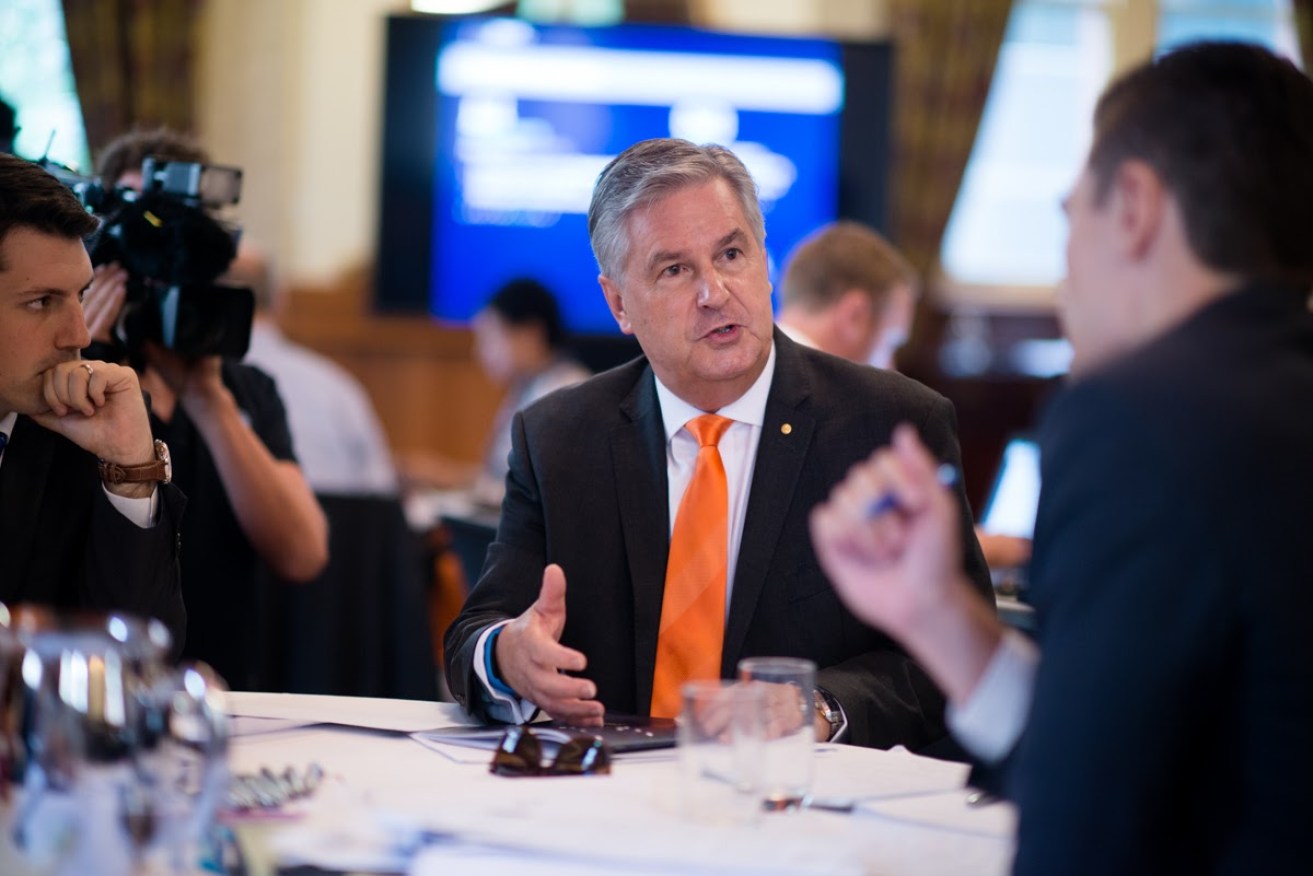‘Act now’ or lose nuclear opportunity to other states
South Australia must seize the opportunity to make billions of dollars storing nuclear waste before another state “grabs” it from us.


Royal Commissioner Kevin Scarce says has urged the establishment of a nuclear waste repository as soon as possible. Photo: Nat Rogers/InDaily
Business SA chief executive officer Nigel McBride told InDaily today the time was right for the State Government to start seriously considering building a nuclear waste repository within SA before another state acted.
“It’s not only viable, it’s compelling,” McBride said of the argument for SA to build a nuclear waste repository.
“We’ve got a massive area, the right climate, we tick all the right boxes for the right place
“If we don’t take this opportunity, I wouldn’t be surprised if another state doesn’t grab it.”
McBride said business attitudes around the export of uranium needed to change and the state and resource companies should consider “leasing” rather than selling uranium.
“We’ve been happy to export but we don’t want to take it back.
“Under a lease option we can take it back.”
He said SA should consider storing low, medium and high levels of nuclear waste.
“The money’s in high-level waste,” he said.
South Australia as the preferred choice for a nuclear waste repository stretches back more than a decade when, in 2003, the Howard Government selected Woomera Station in outback SA as the site for a low-level nuclear facility.
The sheep station was to be compulsorily acquired for the facility.
That year, amid huge public outrage against the facility, the SA Government passed a bill banning the nuclear storage unit and the transportation of radioactive waste from interstate.
In 2004 the Federal Court ruled the compulsory acquisition of the land was unlawful and Woomera Station was dropped.
McBride said technologies and attitudes towards nuclear power had changed in the 10 years since SA was first selected.
“Firstly, in that timeframe technology has changed massively.
“Nuclear has joined the conversation as a optional power source and thirdly more and more people are moving to smaller nuclear reactors and cities like Adelaide can be powered at a relatively low cost.”
Federal Resources Minister Josh Frydenberg said a nuclear power stations in Australia was “not a priority”, however, he wanted to dispel myths about storing radioactive waste.
A South Australian royal commission into the nuclear industry on Monday tentatively found the state should look at building a storage facility for the world’s high-level nuclear wasted.
It added nuclear power was not viable in the near future.
Frydenberg said the option wasn’t risk free.
He told ABC radio that community consultation was needed to dispel myths about the storage of waste, particularly in Australia, which had the right geology for storage.
The Nuclear Fuel Cycle Royal Commission in Adelaide released tentative findings after reviewing 250 public submissions and speaking to 128 expert witnesses.
South Australian Chamber of Mines and Energy chief executive Jason Kuchel said SA should be more involved in nuclear energy.
“The royal commission has scrutinised the evidence together with current regulation and South Australia’s experience in uranium mining and have determined it would be beneficial to increase our role in the nuclear energy fuel cycle,” Kuchel said.
However, despite business enthusiasm for the proposition, Royal Commissioner Kevin Scarce has warned that the waste facility would not become a reality without public support.
Scarce emphasised the need for community consent after handing down the royal commission’s findings on Monday.
“Social consent is absolutely critical … If it’s not delivered, don’t start the project,” Scarce told ABC radio today.
“I want to have that debate. If the community doesn’t agree with it, it falls.”
– with AAP




